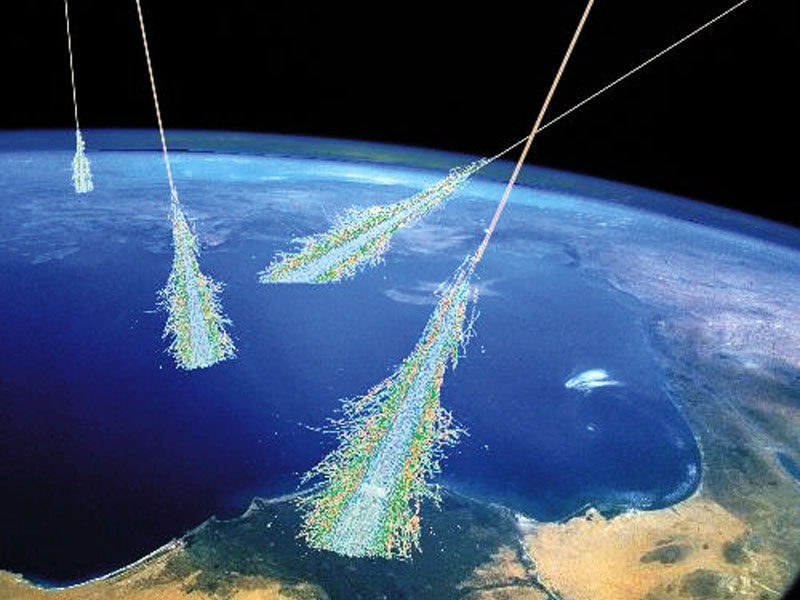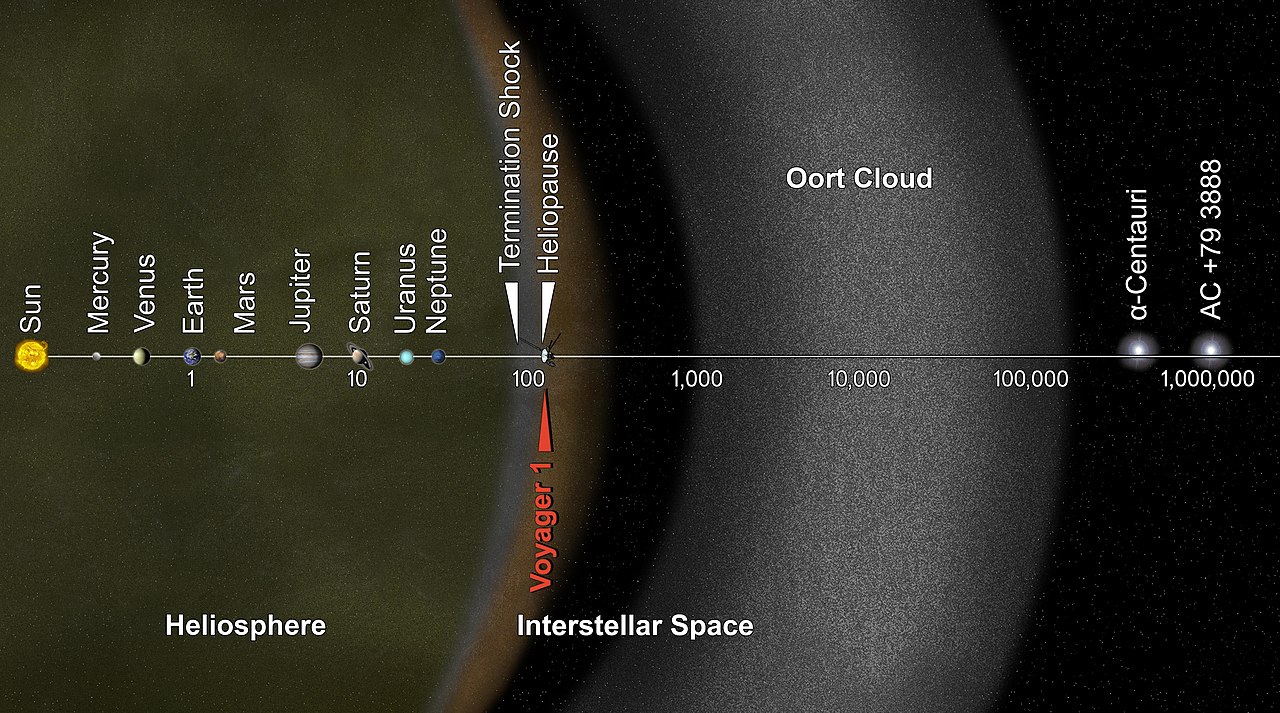whenever the solar output wanes, the heliosphere weakens and contracts and we get more cosmic rays coming into the inner solar system.
some scientists think that we might see a colder sun(lower output) in the near future
which may make for more cosmic rays
which may make for more clouds
???
i have not stuck my mind intot he various layers of the atmosphere and how it allows or prevents cosmic rays.
cosmic rays are simply sun radiation
it is highly unlikely that the atmosphere is capable of creating an atmosphere that is livable that reflects a majority of the suns radiation.
while some parts are reflective to some point
there is a heating effect that is a majority process.
that majority process or over all heating, is compounded by the increasing heat of the ocean and human heating via fires, methane & Co2.
the sun getting colder...
Verses solar minimums ...
question !
when you say sun getting colder, do you mean in a few million years ?
or
when you say sun getting colder
you mean solar minimum ?
because we are currently going through a solar minimum
which is just pure luck for the human species.
once that finishes
shit is going to get super real super fast
high altitude chem trails ?
im not sure they can help
can they develop something that can maybe bond to methane in the upper atmosphere ?
that would be great
though it wont prevent over all global warming as we continue to increase the burning of fossil fuels.
china & india are only going to increase their use of fossil fuels, and as africa comes online and on the rare and unlikely chance Afghanistan, iraq egypt & iran become a civilized place to live
they too will start to massively accelerate the creation of Co2 and other warming activities.
Africa are really starting to get their shit together
hopefully some new tech infrastructure can start to be created to produce low impact infrastructure.
im not going to get right into that stuff.
soo on top of this is the melting sea ice and the melting perma frost which is expected to start to release massive mind bendingly huge methane sinks
or megga sinks of methane.
this is a crowd stopper for global warming
that's just a cross ya fingers and hope it doesn't thing(if you believe in a god, pray that wont happen)
SOooo ..
here we are at a solar minimum
what is it doing ?
less flare ?
potentially a little less heat
however.
a lot more radiation which in turn heats up the earth(including the sea)
what it appears to look like is during a solar minimum large holes are created in the suns magnetic field releasing more solar wind
this solar wind is highly charged and heats the earth like a microwave oven
it also disrupts radio and electrical systems if its really big
NOW...
we have the question
is a solar minimum going to cool the earth ?
no
absolutely not
it potentially has the opposite effect
if i earned better money i could devote time to researching the subject.
i cant see that happening for at least another year or two(fingers crossed)
nasa (bit old unfortunately, more so since they have got the solar telescopes up and running now)
Published: Jun 27, 2017
https://science.nasa.gov/science-news/news-articles/solar-minimum-is-coming
Considering we are a water planet, the ocean is key to creating the atmosphere and livable zones that 70% of the species and around 80% of all technology and citys rely on staying exactly as it is now.
thats not going to happen.
now we get to an exponential seriously bad effect that is simply not factored by the majority and certainly well outside the comprehension of any climate change deniers.
if the worlds ocean run into low oxygen, we are well and truly fucked
Climate change: Oceans running out of oxygen as temperatures rise
By Matt McGrath Environment correspondent, Madrid
https://www.bbc.com/news/science-environment-50690995
Climate change and nutrient pollution are driving the oxygen from our oceans, and threatening many species of fish.
That's the conclusion of the biggest study of its kind, undertaken by conservation group IUCN.
While nutrient run-off has been known for decades, researchers say that climate change is making the lack of oxygen worse.
Around 700 ocean sites are now suffering from low oxygen, compared with 45 in the 1960s.
Researchers say the depletion is threatening species including tuna, marlin and sharks.
The threat to oceans from nutrient run-off of chemicals such as nitrogen and phosphorus from farms and industry has long been known to impact the levels of oxygen in the sea waters and still remains the primary factor, especially closer to coasts.


